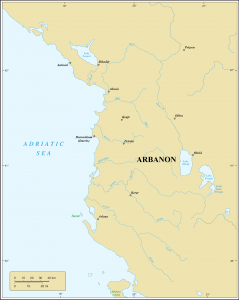I should probably preface this post with the caveat that it does contain numerous “spoilers,” so if you wish to see this film untainted by the disclosure of any plot lines, characterization, thematic development or surprise twists, I suggest you depart before the jump. I myself am not a fan of spoiler alerts, and have a hard time believing that anyone who wanted to see Robert Rodriguez’s much-discussed splatterfest has not availed himself of the opportunity in the past year. That being said, this is your chance to get out clean.
With that preliminary warning out of the way, I will now proceed to analyze the film itself, including the possible motivations of the director and whether or not this motion picture has anything worthwhile to say about the state of American-Mexican relations, or the continued difficulties we face in addressing the problem of illegal immigration to the United States.
I should probably begin by explaining just who Robert Rodriguez is, and how Machete came to be. The director, a Tejano born in San Antonio to working class parents, came to notoriety through the production and release of El Mariachi. The low budget film, a highly contrived but entertaining tale involving a case of mistaken identity between a mariachi musician and a career criminal, was initially designed for distribution throughout the Mexican home video rental market but because of its high quality would be purchased by Columbia Pictures and ultimately lead to a successful, English-language trilogy starring such acclaimed actors as Antonio Banderas, Salma Hayek, and Johnny Depp, as well as the well known Chicano character actor Danny Trejo.
It was the collaboration between the director and Trejo on the second part of the Mariachi trilogy, Desperado, which would eventually bear cinematic fruit. According to Rodriguez, this is where he got the idea to cast Danny Trejo in the role of leading man, which would be teased out in a trailer for Machete shown during screenings of Planet Terror, Rodriguez’s half of the double feature Grindhouse, in which he collaborated with fellow gore enthusiast Quentin Tarantino. This is a very belabored way of saying that the seeds of Machete were planted long before the passage of SB 1070, much less the election of the current governor of Arizona, Jan Brewer.
The problem is that what was intended as an elaborate revenge fantasy modeled on so many of this director’s past films became instead a cri de coeur for pro-amnesty, Mexican nationalists and open borders advocates once the events on the ground overtook the marketing campaign of the people behind the creation of Machete. Rodriguez played up the burgeoning meme of anti-Americanism by releasing a special trailer to Ain’t It Cool News, a popular movie review website, that began with a “special Cinco De Mayo message to Arizona” from the film’s lead, Danny Trejo. Eventually, Rodriguez would disavow that publicity stunt, but not before eagerly lapping up the publicity it generated for the forthcoming debut of his next major motion picture.
This mixed message is reflective of the film itself, from its characteristically violent beginning to its ambiguous denouement, and makes analyzing its cultural significance all the more difficult for the lay viewer. The copy of the film I watched was a DVD filled with extras I borrowed from the New York Public Library, so I was able to view the film with an accompanying “audience reaction” track. Intended to replicate the theater-going experience, it also served as a reminder of the difficulties Rodriguez faced in trying to serve two masters, i.e. making a satisfyingly entertaining, blood-filled action flick, while also trying to suggest a dogmatic political message, if that was one of his underlying goals.
As I described above, the film’s opening sequence is an expected gore-fest which begins with the eponymous Machete riding along with a fellow Federale to the scene of what he believes is a hostage-taking organized by the ubiquitous Mexican cartels. After sacrificing his partner-a recurring theme in this film-slaughtering his way through a thicket of bad guys, and rescuing the incandescently beautiful, and completely nude, Mayra Leal, Machete is ambushed by the henchmen of his former partner turned criminal boss, including the woman he thought he was rescuing.
Rogelio Torrez, the ex-federale/criminal kingpin who unsuccessfully tries to immolate Machete-after murdering his family before his eyes-is played by the surprisingly competent, non-Mexican action film star Steven Seagal. This casting choice, among others, reinforces the self-consciously comic aspects of the film while at the same time diminishing the potency of any polemical broadsides Rodriguez attempts throughout the course of the film in order to stress his fidelity to open borders and a pro-Mexican immigration policy. One of the more unsettling moments in my viewing occurred when the people in the audience track erupted in laughter-as well as scattered applause-after Senator McLaughlin, played by the increasingly one-dimensional actor Robert DeNiro, shoots and kills a pregnant woman and her husband, who were abandoned by a coyote after crossing the Mexico-Texas borderline. I don’t think this is evidence of the audience’s innate sadism, but rather an acknowledgment that it views Machete as a value neutral revenge saga/farce whose politics, if discernible at all, can be safely disregarded.
As far as the actual plot goes, we are led to believe that it hinges upon a confrontation between an anti-illegal alien politician running for re-election, Senator McLaughlin, his allies and supporters-such as Vaughn Walker, the head of a vigilante group modeled after Chris Simcox’s Minutemen, who is played by Don Johnson-and a militant pro-Mexican organization labeled “The Network,” which is presided over by Luz, i.e. Michelle Rodriguez, a taco vendor who hides her affiliation, especially from her arch-nemesis, Agent Sartana Rivera, who’s played by Jessica Alba.
The contrast between Alba’s and Rodriquez’s characters couldn’t be more starkly put. Although both are Mexican-Americans from similar circumstances, Rivera (Alba) has become a diligent ICE agent intent on enforcing the law, while Luz (Rodriguez) has enlisted in a shadowy, criminal conspiracy to aid illegal aliens in migrating across the border and embedding themselves within American society by using falsified or stolen documents. This dichotomy isn’t merely a fanciful invention on the director’s part. Many Mexican-American families have brothers who are at opposite polarities of the justice system, with one sibling working as an LAPD sheriff or Border Patrol agent while another is a member of Las Avenidas or La Eme. But the divide separating Luz from Agent Rivera speaks to an even broader division among America’s Hispanic population, which is extremely ambivalent about issues related to immigration, as has been revealed through numerous surveys conducted among Hispanic Americans. While feeling an intrinsic kinship with immigrants from a similar culture, they also recognize the challenges posed by a group of people who can just as easily be economic competitors as family members.
I think this is where Robert Rodriguez hits upon a quite obvious but nevertheless incisive notion. Luz and Sartana Rivera are two sides of the same coin, and their mutual animosity is born out of a shared heritage that can’t be negotiated out of existence. I’ll explore their unique relationship, as well as the main plot involving the title character’s quest for vengeance, tomorrow.







Recent Comments